|
Written by Julia Mellios
Your gut is one of the hardest working systems in your body. Meal after meal, it hustles to digest your food and extract the nutrients required to sustain you. Despite it’s solid work ethic, your gut can experience occasional performance hiccups, leading to digestive symptoms. While many of these are normal, others may indicate something more serious. Read on to discover what your symptoms say about your gut and ways to improve them. Normal, Everyday Symptoms Transient Belly Bloating What is it? Short-lived abdominal swelling due to trapped gas.
During and after meals, your gut produces enzymes and acids that break down your food, creating gas during this process. While bloating isn’t considered normal, it commonly occurs if you deviate from your standard diet, such as eating larger portions, rich and fatty meals or foods that are more laborious to breakdown, including excess carbohydrates and fibre. These place more burden on your digestive processes, subsequently increasing gas production and bloating. Flatulence
Borborymus
Symptoms That Require Attention Chronic Constipation
Diarrhoea
Malodorous Gas
Abdominal Pain
If you regularly experience one or more problematic symptoms, consult with a Natural Health Practitioner for further investigation, particularly if it is new or getting worse. Additionally, healthcare Practitioners have a suite of testing available to investigate the driver behind your symptoms. For instance, a stool test enables Practitioners to identify all of the bacteria and other microorganisms that inhabit your gut and how they contribute to your gut function and digestive symptoms. Ditch the Gut Glitches Don’t let your gut feelings bum you out! Instead, switch up your diet and lifestyle habits and rid yourself of symptoms such as bloating, gurgles and gas. If your gut symptoms are troubling you, speak with a natural healthcare Practitioner for a comprehensive plan to get you gut comfort, today. References1 Manichanh C, Eck A, Varela E, Roca J, Clemente JC, González A, et al. Anal gas evacuation and colonic microbiota in patients with flatulence: effect of diet. Gut. 2014 Mar;63(3):401-8. doi:10.1136/gutjnl-2012-303013. 2 Victoria State Government, Better Health Channel. Flatulence [Internet]. Melbourne VIC: Victoria State Government, Better Health Channel; 2014 [updated 2014 Aug; cited 2020 Jan 30]. Available from: https://www.betterhealth.vic.gov.au/health/ConditionsAndTreatments/flatulence. 3 Colledge NR, Walker BR, Ralston SH. Davidson’s principles and practice of medicine. 21st ed. Edinburgh (UK): Elsevier/Churchill Livingstone; 2010. p. 763-844. 4 Zhao Y, Yu YB. Intestinal microbiota and chronic constipation. Springerplus. 2016 Jul 19;5(1):1130. doi: 10.1186/s40064-016-2821-1. 5 Colledge NR, Walker BR, Ralston SH. Davidson’s principles and practice of medicine. 21st ed. Edinburgh (UK): Elsevier/Churchill Livingstone; 2010. p. 763-844. 6 NPS Medicinewise. What are the side effects of antibiotics? [Internet]. Sydney NSW: NPS Medicinewise; 2012 [updated 2017 Mar; cited 2020 Feb 18]. Available from: http://www.nps.org.au/medicines/infections-and-infestations/antibiotics/for-individuals/side-effects-of-antibiotics.
0 Comments
Written by Rachel Baudistel Fermented foods and beverages, such as sauerkraut, kimchi and kombucha, were a regular part of our ancestors’ diets for thousands of years. Originally a method of preserving produce from harvest time through the cold days of winter;1 fermentation involves adding a bacterial or yeast starter to a food. These organisms convert starches and sugars to alcohol or acids, lengthening the food’s shelf life and producing the unique and tangy flavours we associate with fermented foods. Recently, these foods have seen a resurgence in popularity, not for their shelf lives but for their claimed digestive health benefits. As probiotics have also risen in popularity for similar reasons, let us explore how fermented foods stack up against a high quality probiotic. It All Begins In The Gut Our interest in strategies to improve digestive health has been fuelled by an expanding body of research indicating that poor gut health negatively affects many other body systems.2 Specifically, imbalances in the microbiome, the ecosystem of approximately 38 trillion bacteria and other organisms living in your digestive tract, have been connected not only to gut disorders but to mood, immune, inflammatory and autoimmune diseases, cancer and even cardiovascular disease.3,4 Research shows that taking live beneficial bacteria, such as probiotics, can improve microbiome health, reducing the symptoms of many health conditions,5,6 improving general health and lowering the risk of diseases such as those mentioned above.7 In light of this, probiotic supplements and fermented foods, both sources of potentially beneficial bacteria, have been put forward as effective options for improving microbiome health. Consequently, there is a misconception that they are interchangeable; however, there are fundamental differences between them. The Pros of Probiotics Probiotics are defined as “live microorganisms that, when administered in adequate amounts, confer a health benefit on the host”.8 Research has shown that specific types (strains) of probiotics, at defined doses, can help manage particular health conditions or symptoms, such as hayfever9 or bloating. To understand this further, let us use irritable bowel syndrome (IBS), a painful digestive disorder, as an example. (To read more about IBS, click here). Research indicates that the specific probiotic strain, Lactobacillus plantarum 299v, can relieve the bloating, intestinal pain and inflammation of medically diagnosed IBS.10,11 This benefit occurs when the probiotic is taken at a dose of 20 billion colony-forming units (CFU), which is a way of expressing the amount of live bacteria contained per probiotic capsule or dose of powder. Scientists give probiotic bacteria three names we can use to identify them and connect them to their health benefits: genus (e.g. Lactobacillus), species (e.g. plantarum), and strain (e.g. 299v). To get the health benefits associated with that strain, all three names must match the probiotic used in the scientific research, as well as the dose. Luckily, you can find information on strains and doses in a probiotic supplement just by reading the label. By choosing a probiotic from a reputable brand committed to quality, you can feel confident that you will receive:
So, if you are looking to improve a particular health condition, choose a strain-specific probiotic for best results. What’s the easiest way to find the right probiotic for your condition? See a Natural Healthcare Practitioner. Fermented Foods Vs Probiotics Although fermented foods contain live bacteria, the microbes responsible for fermentation do not confer the same health benefits as a probiotic supplement. In fact, an expert panel of scientists concluded that fermented foods have unidentified microbial content, meaning there is no guarantee of what bacterial strains or doses will be present in them. For this reason, they are fundamentally different from probiotics.12 That being said, many people experience non-specific digestive health benefits from including fermented foods in their diet, which could be related to the bacteria present, however, more research is needed to confirm this. Since fermentation breaks ingredients down into simpler parts, these foods are generally easier to digest, and fermentation also increases the nutritional value of the food.13 If you are healthy and do not require specific health benefits, fermented foods may be appropriate for you. Be aware that, while fermenting at home can be fun, it is not a risk-free process. Exposure to oxygen, for example, can allow mould, yeast and less beneficial bacteria to grow. High-quality probiotics, on the other hand, are produced under strict hygienic conditions that minimise the risk of introducing ‘bad’ microorganisms into your gut. If your digestive system is sensitive, you may be better off taking a probiotic. Choose What’s Right For You Fermented foods are a tasty addition to the diet and do appear to provide some non-specific digestive benefits to relatively healthy people, on the proviso that they are prepared correctly. However, for support with specific health conditions, it is important to choose a specific probiotic strain, at the right dose, for your condition. To access high-quality probiotics for your particular health needs, contact a Natural Healthcare Practitioner. References1 Chambers PJ, Pretorius IS. Fermenting knowledge: the history of winemaking, science and yeast research. EMBO Rep. 2010 Dec;11(12):914-20. doi: 10.1038/embor.2010.179. 2 Alam R, Abdolmaleky HM, Zhou JR. Microbiome, inflammation, epigenetic alterations, and mental diseases. Am J Med Genet B Neuropsychiatr Genet. 2017 Sep;174(6):651-660. doi: 10.1002/ajmg.b.32567. 3 Alam R, Abdolmaleky HM, Zhou JR. Microbiome, inflammation, epigenetic alterations, and mental diseases. Am J Med Genet B Neuropsychiatr Genet. 2017 Sep;174(6):651-660. doi: 10.1002/ajmg.b.32567. 4 Maranduba CM, De Castro SB, de Souza GT, Rossato C, da Guia FC, Valente MA et al. Intestinal microbiota as modulators of the immune system and neuroimmune system: impact on the host health and homeostasis. J Immunol Res. 2015;2015:931574. doi: 10.1155/2015/931574. 5 Niedzielin K, Kordecki H, Birkenfeld B. A controlled, double-blind, randomised study on the efficacy of Lactobacillus plantarum 299v in patients with irritable bowel syndrome. Eur J Gastro Hepat 2001;13:1-5. PMID: 11711768. 6 Costa DJ, Marteau P, Amouyal M, Poulsen LK, Hamelmann E, Czaaubiel M, et al. Efficacy and safety of the probiotic Lactobacillus paracasei LP-33 in allergic rhinitis: a double-blind, randomised, placebo-controlled trial (GA2LEN) study. Eur J Clin Nutr. 2014;1-6. doi: 10.1038/ejcn.2014.13. 7 Kalliomäki M, Salminen S, Arvilommi H, Kero P, Koskinen P, Isolauri E. Probiotics in primary prevention of atopic disease: a randomised placebo-controlled trial. Lancet. 2001 Apr 7;357(9262):1076-9. doi: 10.1016/S0140-6736(00)04259-8. 8 Hill C, Guarner F, Reid G, Gibson GR, Merenstein DJ, Pot B et al. Expert consensus document. The International Scientific Association for Probiotics and Prebiotics consensus statement on the scope and appropriate use of the term probiotic. Nat Rev Gastroenterol Hepatol. 2014 Aug;11(8):506-14. doi: 10.1038/nrgastro.2014.66. 9 Costa DJ, Marteau P, Amouyal M, Poulsen LK, Hamelmann E, Czaaubiel M, et al. Efficacy and safety of the probiotic Lactobacillus paracasei LP-33 in allergic rhinitis: a double-blind, randomised, placebo-controlled trial (GA2LEN) study. Eur J Clin Nutr. 2014;1-6. doi: 10.1038/ejcn.2014.13. 10 Niedzielin K, Kordecki H, Birkenfeld B. A controlled, double-blind, randomised study on the efficacy of Lactobacillus plantarum 299v in patients with irritable bowel syndrome. Eur J Gastro Hepat 2001;13:1-5. PMID: 11711768. 11 Ducrotté P, Sawant P, Jayanthi V. Clinical trial: Lactobacillus plantarum 299v (DSM 9843) improves symptoms of irritable bowel syndrome. World J Gastroenterol. 2012 Aug 14;18(30):4012-8. doi: 10.3748/wjg.v18.i30.4012. 12 Hill C, Guarner F, Reid G, Gibson GR, Merenstein DJ, Pot B et al. Expert consensus document. The International Scientific Association for Probiotics and Prebiotics consensus statement on the scope and appropriate use of the term probiotic. Nat RevGastroenterol Hepatol. 2014 Aug;11(8):506-14.doi: 10.1038/nrgastro.2014.66. 13 Coyle D. What Is Fermentation? The Lowdown on Fermented Foods. https://www.healthline.com/nutrition/fermentation#what-it-is. Healthline. Accessed July 8, 2019. Did you know that the majority of your immune system is in your gut?1 Picture a lush, harmonious rainforest teeming with diverse forms of life; this is what a healthy gut should look like at a microbial level. With more than 1,000 microbial species, most of which are bacteria, your gut’s microbiome makes up an essential part of your immune system.2 The good bacteria in your gut protect you from pathogenic invaders and keep harmful bacteria from growing out of control. The good bacteria that live in your gut are an essential part of your body’s microbiome. Here are 10 of the best ways to increase your good gut bacteria.
1. Eat whole foods The human body is not meant to run on food-like substances; diet matters! Eating processed foods and refined sugars starves the good bacteria in your gut, allowing harmful bacteria to grow out of control, also known as dysbiosis.3,4 Instead of filling up on processed foods, eat the rainbow. Choosing to eat a wide variety of whole high-fiber foods feeds your good bacteria and, in turn, nourishes your microbiome. Choosing organic produce is also a great way to add good bacteria to your gut’s ecosystem.5 By keeping your good bacteria strong and healthy, they can keep you healthy too. 2. Eat fermented foods The creation of fermented foods dates back thousands of years, as far as 10,000 BCE, with the advent of yogurt; the health benefits of yogurt are described in Ayurvedic scripts from 6,000 BCE.6 Fermented foods are a great way to support your health by adding good bacteria to your gut’s population of roughly 100 trillion bacteria and microbes. Here are some tasty options for adding fermented foods to your daily diet:
Probiotics are “live microorganisms that, when administered in adequate amounts, confer a health benefit on the host.”7 Choosing a high-quality clinically supported probiotic is a great way to introduce some new friends to your gut. Different strains of probiotics offer different health benefits; here are six things to look for in a probiotic. 4. Feed your good bacteria Now that you’ve loaded up on good bacteria from probiotic foods, it’s time to feed your new friends! Probiotics and prebiotics go together like, well, probiotics and prebiotics! Prebiotics are fibers that can resist the digestive process; once prebiotics reach the colon, they are “eaten” (selectively fermented) by specific strains of friendly gut bacteria.8,9 Here are some whole foods filled with prebiotics to feed your microscopic friends:10
Research shows a relationship between sleep and diversity within the gut microbiome.11 Consistent, uninterrupted sleep of between seven to nine hours per night has been shown to have a positive correlation to bacterial strains related to good health.12,13 6. Get moving Consistent exercise results in increased good bacteria. In a six-week study, exercise was shown to increase the numbers of certain strains of good bacteria.14 However, when followed by a six-week sedentary period, the increase of microbiota returned to baseline, so it’s important to get moving and stay moving.14 7. Destress Stress has been shown to have a negative impact on gut health. Heightened stress levels can trigger an increase in bad/pathogenic bacteria, crowding out good bacteria.15,16 Try these six simple ways to reduce stress. 8. Get some vitamin D A 2019 study found that skin exposure to UVB light positively impacts the diversity and composition of the human microbiome.17 Vitamin D supplementation also has positive impact on the gut’s microbiome by increasing bacterial diversity and richness.”18,19 9. Take it easy on the cocktails It’s well known that red wine can support good health, but too much alcohol has been shown to have a negative impact on good gut bacteria.20,21 The CDC 2020-2025 guidelines recommend one drink or less in a day for women and two drinks or less in a day for men.22 The CDC guidelines also caution against beginning drinking for possible health benefits and advise that “drinking less is better for health than drinking more.”22,23 The health benefits of red wine likely stem from polyphenols from the grape skins present in the wine-making process.24-27 Polyphenols are complex compounds found in fruits and vegetables that protect plants from pathogens and UV radiation; these compounds act as an antioxidant and as a prebiotic in the human body.28,29 Plenty of foods are packed with polyphenols, such as:30
Smoking causes a decrease in microbiome diversity; smoking withdrawal has been found to increase gut microbial diversity.31 Quitting smoking is a great way to show your little critters some love.31 All of these are great ways to help increase the friendly bugs working hard in your gut. Which will you try first? References: 1. Vighi G et al. Allergy and the gastrointestinal system. Clin Exp Immunol. 2008;153 Suppl 1(Suppl 1):3-6. 2. Wang W et al. Gut microbiota and allogeneic transplantation. J Transl Med. 2015;13:275. 3. Gagliardi A et al. Rebuilding the gut microbiota ecosystem. Int J Environ Res Public Health. 2018;15(8):1679. 4. Di Rienzi SC et al. Adaptation of the gut microbiota to modern dietary sugars and sweeteners. Adv Nutr. 2020;11(3):616-629. 5. Blum WEH et al. Does soil contribute to the human gut microbiome? Microorganisms. 2019;7(9):287. 6. Fisberg M et al. History of yogurt and current patterns of consumption. Nutr Rev. 2015;73 Suppl 1:4-7. 7. Hill C et al. The International Scientific Association for Probiotics and Prebiotics consensus statement on the scope and appropriate use of the term probiotic. Nat Rev Gastroenterol Hepatol. 2014;11(8):506-514. 8. Charalampopoulos D et al. Prebiotics in foods. Curr Opin Biotechnol. 2012;23(2):187-191. 9. Gibson GR et al. Expert consensus document: The International Scientific Association for Probiotics and Prebiotics (ISAPP) consensus statement on the definition and scope of prebiotics. Nat Rev Gastroenterol Hepatol. 2017;14(8):491-502. 10. Jovanovic-Malinovska R et al. Oligosaccharide profile in fruits and vegetables as sources of prebiotics and functional foods. Int J Food Prop. 2014;17(5):949-965. 11. Smith RP et al. Gut microbiome diversity is associated with sleep physiology in humans. PLoS One. 2019;14(10):e0222394. 12. Fei N et al. Gut microbiota alterations in response to sleep length among African-origin adults. PLoS One. 2021;16(9):e0255323. 13. Bowers SJ et al. Repeated sleep disruption in mice leads to persistent shifts in the fecal microbiome and metabolome. PLoS One. 2020;15(2):e0229001. 14. Mailing LJ et al. Exercise and the gut microbiome: a review of the evidence, potential mechanisms, and implications for human health. Exerc Sport Sci Rev. 2019;47(2):75-85. 15. Zeng MY et al. Mechanisms of inflammation-driven bacterial dysbiosis in the gut. Mucosal Immunol. 2017;10(1):18-26. 16. Kiecolt-Glaser JK et al. Modulation of cellular immunity in medical students. J Behav Med. 1986;9:5–21. 17. Bosman ES et al. Skin exposure to narrow band ultraviolet (UVB) light modulates the human intestinal microbiome. Front Microbiol. 2019;10:2410. 18. Bashir M et al. Effects of high doses of vitamin D3 on mucosa-associated gut microbiome vary between regions of the human gastrointestinal tract. Eur J Nutr. 2016;55(4):1479-1489. 19. Waterhouse M et al. Vitamin D and the gut microbiome: a systematic review of in vivo studies. Eur J Nutr. 2019;58(7):2895-2910. 20. Zhang X et al. Alcohol-induced changes in the gut microbiome and metabolome of rhesus macaques. Psychopharmacology. 2019;236(5):1531-1544. 21. Dubinkina VB et al. Links of gut microbiota composition with alcohol dependence syndrome and alcoholic liver disease. Microbiome. 2017;5(1):141. 22. https://www.cdc.gov/alcohol/fact-sheets/moderate-drinking.htm. Accessed September 21, 2021. 23. https://www.dietaryguidelines.gov/sites/default/files/202012/Dietary_Guidelines_for_Americans_2020-2025.pdf. Accessed September 21, 2021. 24. https://journalsblog.gastro.org/is-red-wine-consumption-good-for-your-intestinal-microbiome/. Accessed September 21, 2021. 25. https://www.winespectator.com/articles/understanding-wine-polyphenols-health-benefits. Accessed September 21, 2021. 26. Wiciński M et al. The influence of polyphenol compounds on human gastrointestinal tract microbiota. Nutrients. 2020;12(2):350. 27. Cavallini G et al. Resveratrol requires red wine polyphenols for optimum antioxidant activity. J Nutr Health Aging. 2016;20(5):540-545. 28. Pandey KB et al. Plant polyphenols as dietary antioxidants in human health and disease. Oxid Med Cell Longev. 2009;2(5):270-278. 29. Nazzaro F et al. Polyphenols, the new frontiers of prebiotics. Adv Food Nutr Res. 2020;94:35-89. 30. Yang J et al. Polyphenols in foods. Nutri Today. 2016;51(6):290-300. 31. Capurso G et al. The interaction between smoking, alcohol and the gut microbiome. Best Pract Res Clin Gastroenterol. 2017;31(5):579-588. As women, we’re constantly seeking balance. Balancing our families and careers, time and energy, work and fun can be a struggle. But balancing that delicate microbiome in our guts doesn’t have to be a challenge, thanks to probiotics. Probiotics are “live microorganisms that, when administered in adequate amounts, confer a health benefit on the host.”1 There are many myths about probiotics, but the health benefits aren’t one of them. If you’re curious why you should consider taking a daily probiotic and how it can benefit you, consider the following six reasons. 1. Probiotics support immune health. It’s a well-known stereotype that women tend to put others first. The downside of this is that we don’t always take the time to take care of ourselves. The gut plays an active role in immune health, with intestinal bacteria helping to regulate immune cell activity.2 Taking a daily probiotic may be helpful for supporting immune function.3 2. Probiotics can provide self-care for “down there.” Yes, that “down there.” The vagina is an ecosystem that requires a delicate balance, just like the gut. Luckily, there are clinically researched probiotic strains that have been shown specifically to impact feminine health.4 Two such probiotic strains are Lactobacillus rhamnosus GR-1® and Lactobacillus reuteri RC-14®, which work by traveling through the digestive tract to the vagina.5 Research shows that once there, the two probiotic strains work to help maintain a healthy vaginal environment by increasing the number of good bacteria.4,6,7 3. Certain probiotic strains support weight maintenance. Most people know that a healthy weight correlates to a healthy life.8 But did you know that probiotics can help you maintain that healthy weight? One probiotic strain in particular, Bifidobacterium lactis B-420™, has shown in clinical research that it can help weight maintenance by controlling body fat.9 4. Probiotics support gut health. Women aren’t the only ones whose guts benefit from daily probiotics; this one’s for everyone, even kids! Much research has been done on the benefits of probiotics on gut and digestive health, so it’s no wonder it’s a common reason practitioners recommend this first line therapy for patients seeking digestive support. Look for strains like Bifidobacterium lactis Bi-07® and Lactobacillus acidophilus NCFM®, both of which have been researched for their relationship to good gut health.10,11 5. Probiotics can help get mild diarrhea under control. Sometimes we just need a little help getting back to regular. Luckily, there have been many studies done on the relationship between probiotics and gastrointestinal comfort.12 Probiotics like Saccharomyces boulardii and the strain Bifidobacterium lactis HN019 have been studied extensively for their gastrointestinal benefits.13,14 6. Probiotics may help support mood & cognition. Our guts and brains communicate through what’s known as the gut-brain axis.15 In other words, just as stress or unhappiness can lead to an upset tummy, an upset microbiome can affect our mood.14 The opposite works as well: Recent studies have shown that probiotics may help support mood as well as cognition, even to the point of lowering stress levels.16,17 Curious which probiotics would be best for your specific needs? Your healthcare practitioner can help to guide you. For more information on nutrition and gut health, please visit the Metagenics blog. References: 1. Hill C et al. Natur Revs Gastro Hepatol. 2014;11(8):506—514. 2. Bermudez-Brito M et al. Ann Nutr Metab. 2012;61(2):160-174. 3. Kang E-J et al. Korean J Fam Med. 2013;34(1):2-10. 4. Reid G et al. FEMS Immunol Med Microbiol. 2001;32(1):37-41. 5. Reid G et al. FEMS Immunol Med Microbiol. 2006;30(1):49-52. 6. Reid G et al. J Med Food. 2004;7(2):223-228. 7. Reid G et al. FEMS Immunol Med Microbiol. 2003;35(2):131-134. 8. Loman T et al. BMC Public Health. 2013;13:259. 9. Stenman LK et al. EBioMedicine. 2016;13:190-200. 10. Ringel-Kulka T et al. J Clin Gastroenter. 2011;45:518-525. 11. Leyer GJ et al. Pediatrics. 2009;124:e172-179. 12. Vitetta L et al. Inflammopharmacol. 2014;22(3):135-154. 13. Kelesidis T. Therap Adv Gastroenterol. 2012;5(2):111–125. 14. Waller PA et al. Scand J Gastroenterol. 2011;46(9):1057–1064. 15. Carabotti M et al. Ann Gastroenterol. 2015:28(2):203-209. 16. Papalini S et al. Neurobiology of Stress. 2019;10:100141. 17. Akbari E et al. Front Aging Neurosci. 2016. https://www.frontiersin.org/articles/10.3389/fnagi.2016.00256/full. Accessed February 19, 2021. NCFM® and Bi-07® are registered trademarks licensed by DuPont. Submitted by the Metagenics team In the last decade or so, the interest and use of probiotics have skyrocketed. According to Statista.com, sales of probiotic supplements in the United States amounted to $1.4 billion in 2014 and are projected to grow exponentially in the coming years.1 With numerous commercials on television these days advertising the various health benefits that probiotics can provide, have you ever wondered about giving probiotics to your kids?
What are probiotics? The human microbiota are very diverse and consist of 10-100 trillion bacteria living in the various tissues of the body such as the skin, mouth, and gut.2 Most of these bacteria live in our gut and are resistant to the colonization of bad bacteria, act as key players in the process of gut immune system development, and form short-chain fatty acids (SCFA), a major energy source for cells in the colon.3 The microbiota continue to evolve as we age and are influenced by what we eat, our body composition, how much sleep we get, how many antibiotics we take during our lifetime, and the amount of daily stress we experience.4 One way to support healthy microbiota is to create a balanced environment of different types of bacteria. We can do this by supplying our bodies with more beneficial bacteria, called probiotics. The Food and Agriculture Organization of the United Nations (FAO) and the World Health Organization (WHO) define probiotics as “live microorganisms that, when administered in adequate amounts, confer a health benefit on the host.”5 Some examples of food sources that contain these beneficial bacteria are yogurt, kefir, miso, kimchi, tempeh, and sauerkraut. It might be difficult to obtain the amount of beneficial bacteria from probiotic-rich food alone; therefore, incorporating a probiotic supplement that offers a stable and reliable source of gut-friendly bacteria as part of your daily regimen might be a good idea.* Use of probiotics in children There is an increased interest in the use of probiotics in children because of the growing evidence that suggests that these gut-friendly bacteria may convey numerous health benefits to kids, as well. Some of the most studied probiotics are L. rhamnosus GG (LGG), B. lactis, L. reuteri, and S. boulardii.6-8 How to choose a probiotic Probiotics have a specific, designated nomenclature based on their genus, species, and strain. The most commonly recognized probiotic genera include Lactobacillus and Bifidobacterium3 and are used in many functional foods and dietary supplements. If you choose to give probiotic supplements to your children, consider the following:
References:
By Whitney Crouch, RDN, CLT
Probiotics. We’ve all heard the buzzword, and many are now familiar with the term the “good guys” in the gut…but what do they do? What are they, exactly? Do prebiotics act alongside probiotics? How are they beneficial to the host or their gut microbiota? These are questions that have been explored recently, and the answers are only the beginning of where the science of prebiotics and probiotics will go. Probiotics
The two most investigated prebiotics are fructans and galactans. Fructans include inulin and FOS, which can be found in many common foods, including blue agave, chicory root, garlic, onion, Jerusalem artichokes, leeks, asparagus, dandelion greens, and bananas.6 GOS, a functional alternative to HMOs, are found in infant formulas and are also found in seaweed and legumes like chickpeas, lentils, kidney beans, and green peas.7 Whereas the average dietary fiber supports the health of both the “good” and “bad” microbiota in our guts, prebiotics are more targeted in that they selectively support the microbiota that support the host—the humans or animals that the microorganisms live in. How do prebiotics work to support probiotics and human health? Prebiotics are fermented by human gut microbiota (remember: probiotics help colonize the gut with healthy microbes) into short-chain fatty acids (SCFAs) acetate, propionate, and butyrate. SCFAs are increasingly recognized as signaling molecules that mediate the interaction between the diet, the gut microbiota, and the host.8 Locally in the gut, SCFAs serve as energy substrates for cells of the colon and play a role in host metabolism.8-9 A fraction of the colon-produced SCFAs reach the systemic circulation and directly affect the function and metabolism of peripheral organs and tissues, such as the liver, the pancreas, adipocytes, immune cells, and skeletal muscle tissue. Studies show that the permeation of SCFAs throughout the body are involved in maintaining glucose and lipid metabolism and may provide an important target for other facets of health as well.9 There are health benefits to be had for individuals consuming probiotics with prebiotic compounds; however, there may be contraindications for some patients. It should be noted that people with sensitivities to fermentable oligosaccharides, disaccharides, monosaccharides, and polyols (FODMAPs) should use caution and consult a knowledgeable healthcare practitioner before incorporating higher amounts of prebiotic foods or supplements. The market for supplements containing prebiotics or pre-/probiotic combinations and the body of research science supporting their clinical use are both growing, with more discoveries and targeted approaches to be revealed. It’s important to choose high-quality supplements to ensure the best symbiotic relationship between pre- and probiotic strains, which in turn can increase the efficacy of this combination. References
Go with Your Gut: A Guide to Probiotics
In recent years, the number of gut-related doctor visits has been as high as 30 million annually.1 And more and more people are turning to probiotics to help support gastrointestinal (GI) health. What many do not know is that these tiny, “friendly” bugs can be beneficial for more than just gut health. Why Probiotics? Your body contains a delicate balance of diverse bacteria. Probiotics act as “friendly” bacteria and are an important ally to help support your intestinal ecosystem. It’s important to know, however, that these microscopic organisms do not all share the same personality. Strain Identification and Why It Matters Many probiotic formulas on the market are nonspecific about their applications. And that’s no surprise—considering many of these formulas contain organisms that are not strain-identified. This makes it even more difficult to choose the right formula. In fact, only a handful of probiotic strains have been researched extensively. Make sure you pay attention to the product label, and look for a genus, species, and strain (e.g., Lactobacillus acidophilus NCFM). This should appear as two long Latin words (genus first and species second) followed by a series of capitalized letters and/or numbers (the strain). Keep this tip in mind when you shop for a probiotic formula. Different Strains for Different “Gains” There is no one-size-fits-all formula. Scientific evidence has indicated that the effectiveness of probiotics for targeted areas of health support depends on the strain.2 That’s why it’s important to consult your healthcare practitioner before starting a probiotic regimen. Refer to this quick guide for a better understanding of probiotic strains and their health benefits. Gastrointestinal health
References:
Almost everyone has heard of probiotics and how helpful they can be for gut health, but the word “prebiotics” can seem a little confusing. The definition and scope of prebiotics have been evolving as researchers increase their understanding of prebiotic mechanisms in the body, but questions, such as how prebiotics differ from probiotics and how many types of prebiotics are there, remain.
What are prebiotics? Prebiotics are a class of compounds recognized for their ability to be selectively utilized by host microbiota to the benefit of the host.1 The intestinal microbiome consists of many different types of microbes, and prebiotics provide the fuel for probiotics to thrive and support human health. For example, consumption of prebiotics may lead to increased numbers of beneficial bacteria such as Bifidobacterium and Lactobacillus, which can help stimulate the immune system and may help positively affect blood lipids.1 Essentially prebiotics are the food that probiotics need to spring into action within the gut. A probiotic meal ticket Prebiotics literally are the meals that probiotics need to consume in order to thrive and help support a healthy gut microbiota. Small amounts of prebiotics are found in certain foods. For example, the prebiotic inulin is found in asparagus, bananas, barley, chicory root, garlic, honey, Jerusalem artichoke, onions, and rye.2,3 Prebiotics are also found in mother’s milk (human milk oligosaccharides, or HMOs) and are thought to help colonize the infant’s intestinal microbiota with beneficial bacteria. 4 Supplementation with prebiotics directly delivers this fuel source to the probiotics in the gut. Types of prebiotics There are many types of prebiotics, including certain kinds of fats (CLA, conjugated linoleic acid, or PUFAs, polyunsaturated fatty acids), HMOs, phenolics and phytochemicals, readily fermentable dietary fibers, and oligosaccharides. 1 Oligosaccharides include fructose, glucose, galactose, mannose, and xylose. These are the most well-known prebiotics:
How much? While there isn’t a standard or recommended amount yet, supplementation and/or consumption of foods with added prebiotics can help achieve daily intake of these important compounds. Submitted by the Metagenics Marketing Team References:
In the face of varying marketing messages, shopping for a probiotic can be overwhelming. Some companies champion products with high CFU (colony-forming units, which is the measurement of groups of living microorganisms observed under the microscope), while others showcase products with dozens of strains. With more product options than ever, it is important to know what to look for when selecting a probiotic.
So what is a probiotic? Scientists define a probiotic as the following: “Live microorganisms that, when administered in adequate amounts, confer a health benefit on the host.”1,2 Based on that definition, how do you find the probiotic you need? Here is a checklist of six things to look for: Personalization—What health benefits do you need?
Science—Clinically studied to demonstrate health benefits
Identity—Genus, species, and strain
Amounts matter—Billions are not always better
Alive through expiration
Manufacturing quality/testing for contaminants and purity
Submitted by the Metagenics Marketing Team Did you know your body can contain up to ten times more bacteria than it does human cells?
Probiotics are living microorganisms that can have beneficial effects on the microbiome and on many aspects of the human body; their use has become quite widespread in the last several years. But as is common among topics that rapidly rise in popularity, misinformation is easily spread as some companies may prey on customers’ ignorance. We think it’s time to debunk the most common myths about probiotics so you can make informed decisions. Myth: All probiotic strains are created equal.Fact: Only a handful of probiotic strains have been clinically shown to support human health. In fact, only a few probiotic strains have been researched extensively.1 What is a “strain”? While many probiotics are listed as a genus and species (such as Lactobacillus acidophilus), each species can also have many strains, and each strain may have different effects on particular body systems.2 For example, L. rhamnosus GR-1® and L. reuteri RC-14® are two probiotic strains shown to specifically target women’s health.*3 Myth: Better-quality probiotics don’t require temperature-controlled environments.Fact: Since probiotics are living microorganisms, it makes sense that they must exist in a habitable environment. They are sensitive to heat and moisture, which can impact viability. If handled carelessly or exposed to extremely high temperatures during shipping or storage, these tiny organisms may die off and/or lose their effectiveness, which equals a lack of potency and subsequent lack of health benefits.4 How can probiotics products be protected from heat? Refrigeration is not required for probiotics, but it is often the best way to protect the viability and ensure potency over a longer period of time.4 Reputable manufacturers usually ship probiotic products with ice packs to help ensure they are protected on their journey to you. Although the ice may melt before delivery, the temperature within the package should remain well below the level at which damage to the bacteria could occur.4 Packaging of probiotics is important, as well, to maintain viability. Desiccant packets in product bottles help to reduce moisture from the environment, while the bottles themselves matter too. Look for amber glass bottles, which eliminate the risk of UV oxidation.5 Read: 6 Things to Look for in a Probiotic Myth: The higher the potency, or total numbers, of a probiotic, the better the results.Fact: As it is important to utilize well-researched probiotic strains, it’s also important to keep in mind that the research conducted is usually done based on a total number of colony-forming units (CFU) of a specific probiotic. The potency, or total number of CFU, should be based on published scientific and clinical data on specific strains that demonstrate clinical efficacy for particular health benefits.6 In other words, if a study on a specific probiotic strain indicates health benefits at a dosage of 10 billion CFU, any product touting that benefit should have exactly 10 billion CFU. Companies promoting products with a higher number, and therefore a supposed increased benefit, may not be clinically accurate or relevant. Myth: Guaranteed potency at the time of production and expiration is the same thing.Fact: While some probiotic manufacturers tout the number of CFU at the time of production, not all can guarantee that you’ll get this number when you take them. Probiotics die over time, and this loss of efficacy can increase depending on manufacturing, shipping, and storage processes.4 Only products that guarantee potency at expiration assure reliable efficacy from start to finish. This follows the Best Practices Guidelines for Probiotics from the Council for Responsible Nutrition (CRN) and the International Probiotics Association.7 Quality probiotics state a guaranteed bacterial number on the label, with instructions for the consumer on proper usage. With appropriate storage after delivery, potency ideally should be guaranteed through the date of expiration—for reliable efficacy with every use. For more information on probiotics and nutrition, please visit the Metagenics blog. References:
Submitted by the Metagenics Marketing Team |
Categories
All
Archives
April 2024
|
|
Join Our Community
|
|
Amipro Disclaimer:
Certain persons, considered experts, may disagree with one or more of the foregoing statements, but the same are deemed, nevertheless, to be based on sound and reliable authority. No such statements shall be construed as a claim or representation as to Metagenics products, that they are offered for the diagnosis, cure, mitigation, treatment or prevention of any disease. |



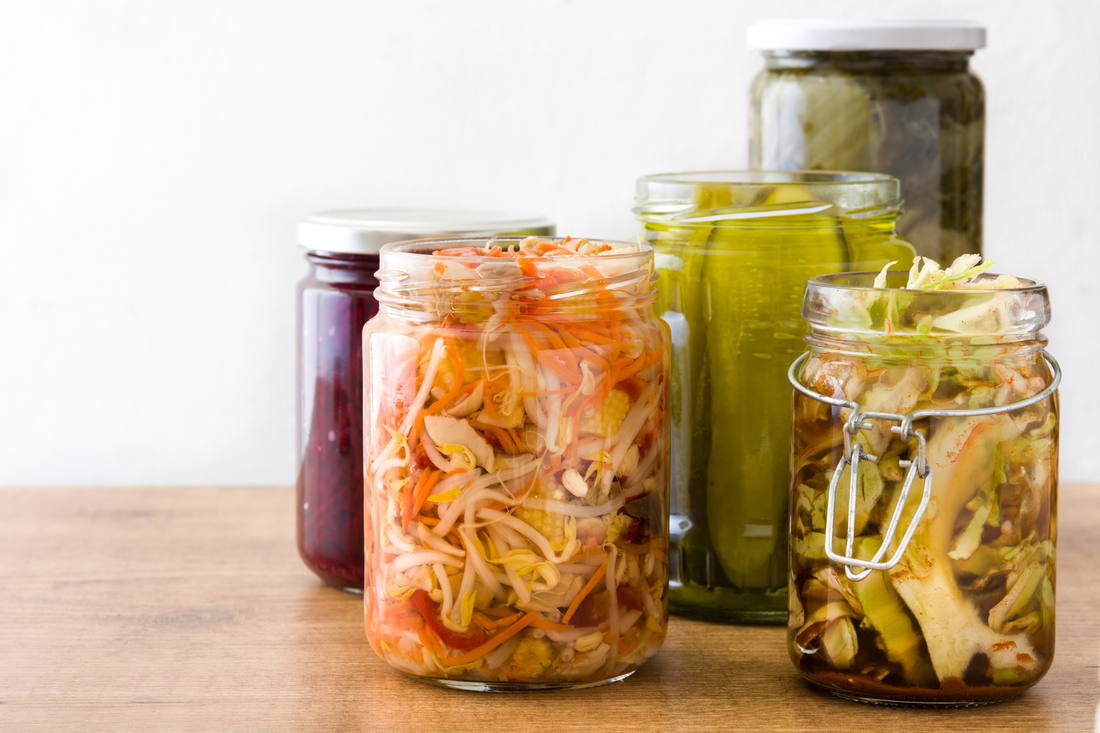
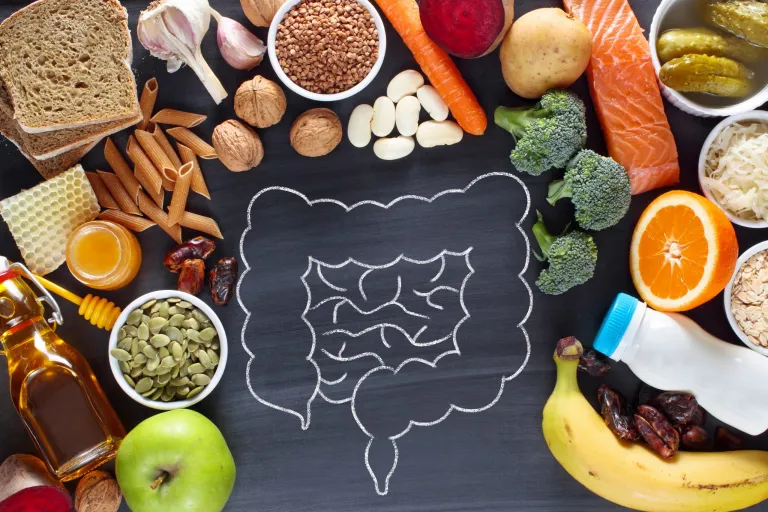

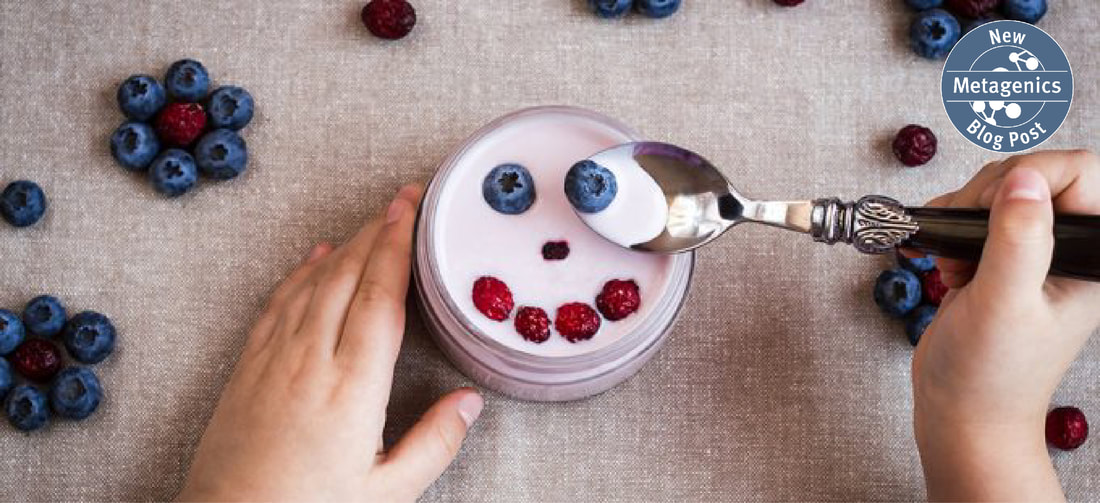
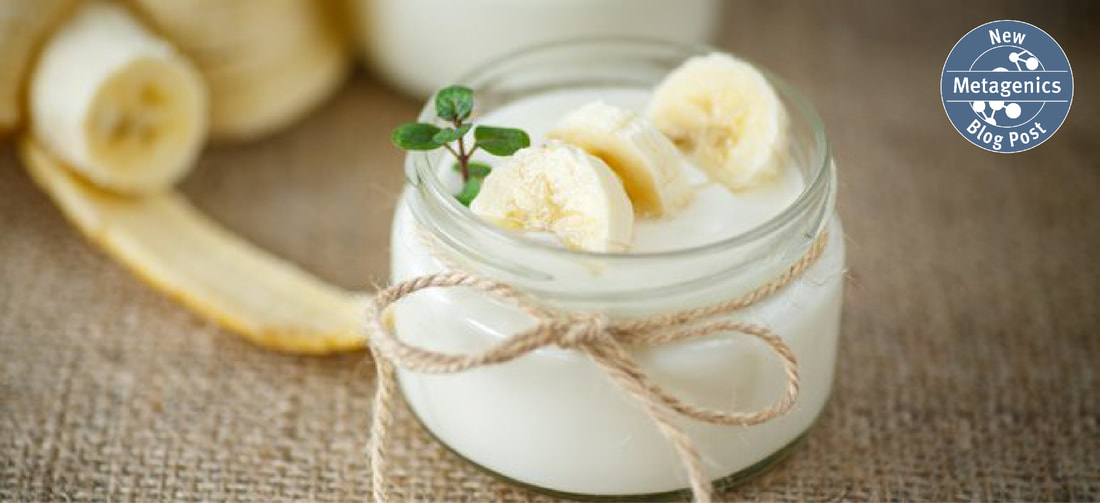
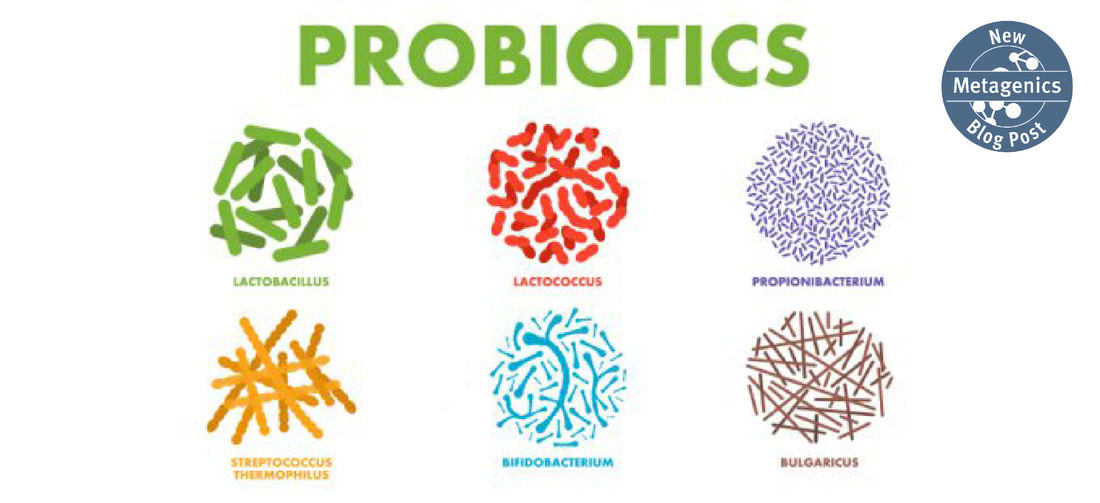
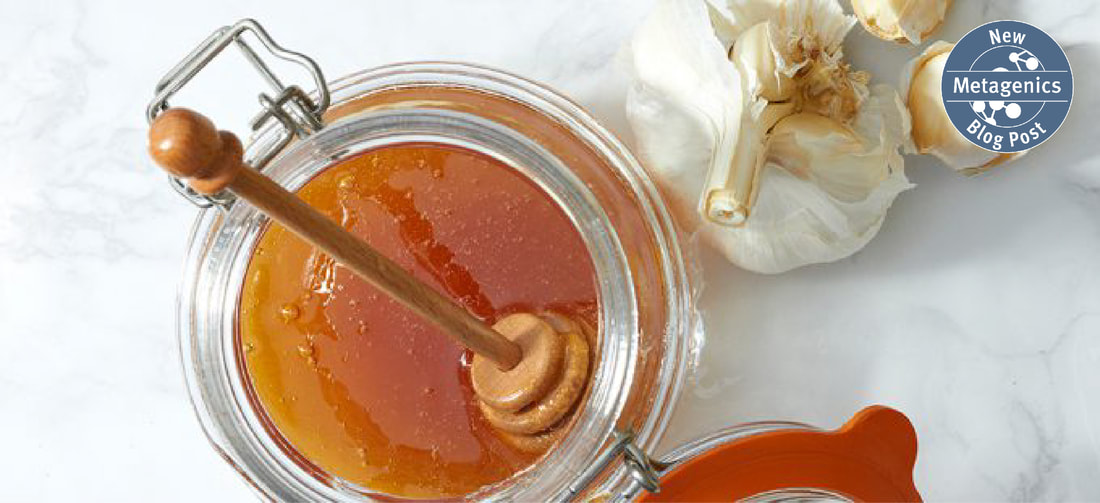


 RSS Feed
RSS Feed